This post contains affiliate links from which I may receive a small commission, at no extra cost to you. In no way does this affect my opinion or the information I provide on the product. Please read my disclaimer for more info.
Iron deficiency is the most common and widespread nutritional deficiency 1 and contributes to death and disability worldwide 2. It’s the only nutritional deficiency that is so prevalent in industrialized countries, meaning that YOU have chances of being deficient.
Luckily, following some easy guidelines and eating from a list of foods rich in iron can get you right back on track.
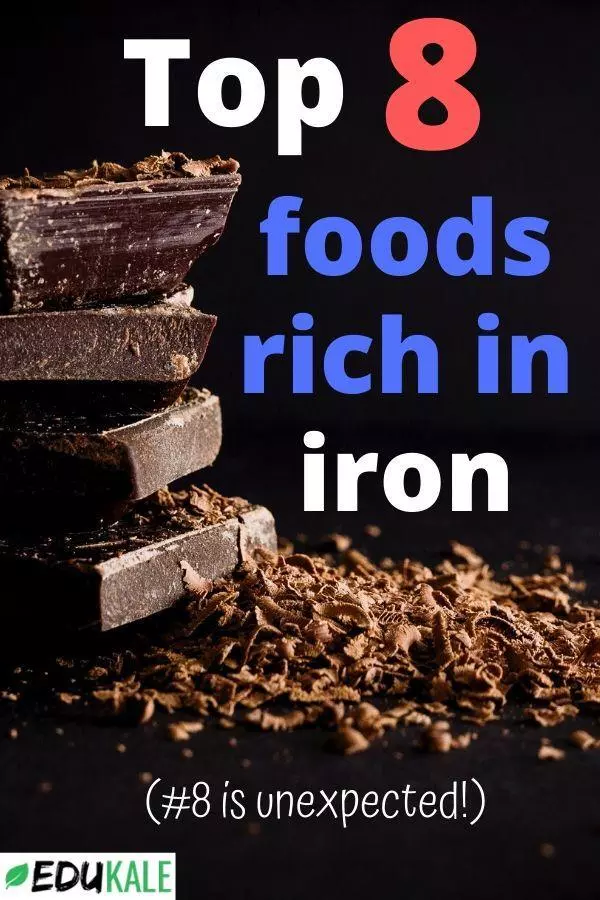
The health benefits of iron
Iron is a mineral that has many important biological functions. Most of the iron in your body is found in your red blood cells, which contain a protein called hemoglobin. This protein transports oxygen in your blood to all the organs in your body, and couldn’t function without iron.
Some of your body’s iron is stored in the form of ferritin, but these stocks can quickly get depleted if your iron intake is too low.
In addition, iron helps convert nutrients into energy and contributes to neurotransmission (communication between nerve cells) 3.
If you don’t consume enough iron, you could be heading towards an iron deficiency: here are the signs.
Signs of an iron deficiency
If you aren’t getting your daily iron intake, you won’t have enough healthy red blood cells to transport sufficient oxygen to your organs: this is anemia. This condition will leave you feeling exhausted and energy-deprived.
Another sign of an iron deficiency is a change in your skin color. Since hemoglobin is responsible for the blood’s red color, low levels of iron, and therefore hemoglobin, will make your blood less red. Your skin could then lose its rosy color and appear paler or more yellow 4.
Dry skin and hair could also be a sign that you have an iron deficiency. When your body is deficient in certain nutrients, it directs its limited resources to your essential body functions. In this case, the oxygen is preferably sent to your organs while skin and hair may receive less.
In addition, you might also experience shortness of breath if you are iron-deficient. With low hemoglobin, your muscles probably won’t be getting enough oxygen, and your breathing rate will increase to try to compensate.
Finally, you may experience other symptoms such as headaches, heart palpitations, mouth and tongue swelling, restless legs, or strange cravings for clay, dirt, chalk or paper 5.
Iron is an essential nutrient, meaning that it must be provided from food. Here is a list of foods rich in iron to help you get in your recommended intake.
List of top 8 foods rich in iron (6)
Animal products contain heme iron, which is absorbed more efficiently by your body. Here are some great animal sources of iron:
1. Oysters and Mussels
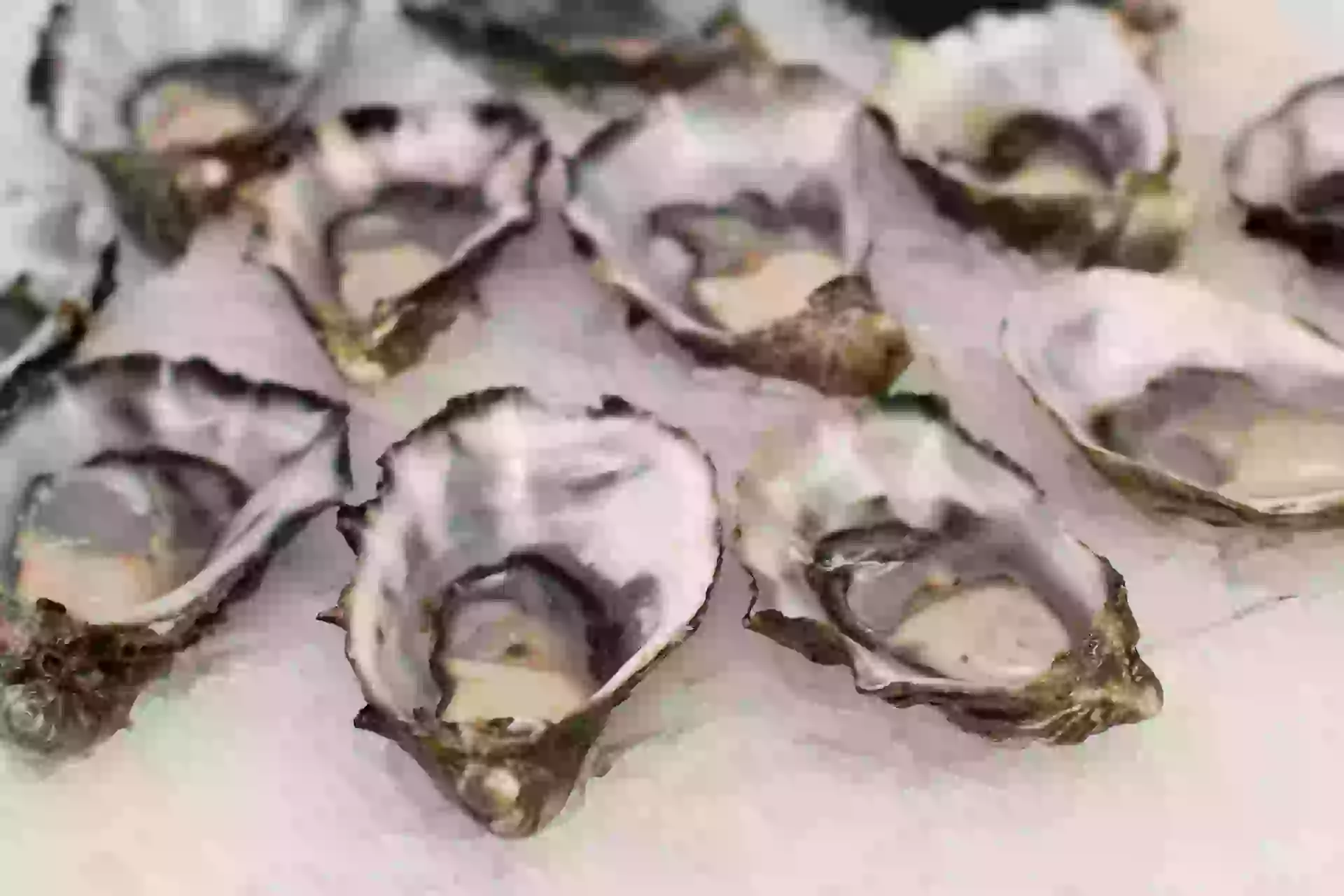
Oysters contain 12 milligrams (mg) of iron per 100 grams, which is 67% of your daily needs. They are extremely high in vitamin B12, zinc, copper, and selenium as well.
Mussels are also very high in iron: 6.7 mg for 100 grams of mussels!
Both shellfish are also very rich in vitamin B12, manganese, zinc, copper, selenium, and healthy omega 3 fatty acids. Their only downside is their potential for toxins and mercury.
2. Liver
100 grams of liver gives you 6.5 mg of iron, which is 36% of the daily value. Other organ meats are also very high in iron. Aside from iron, liver more than covers your daily needs of vitamin B12, copper, vitamin A, and vitamin B2. However, it also exceeds your daily needs in cholesterol, so watch out for that.
3. Red meat
100 grams of beef equals around 2.2 mg of iron or 12% of your daily needs. This also covers half of your daily needs in protein. However, it contains high amounts of cholesterol and omega 6 fatty acids.
Plant-based products contain non-heme iron, which we tend to absorb less easily. Therefore, vegans and vegetarians should consume more iron to get in the recommended amount. While eating iron-rich foods, It’s also advised to consume foods high in vitamin C, which increases iron absorption 7.
Conversely, calcium can reduce iron absorption, so try not to eat it with your iron-rich meals. The same goes for coffee and tea, which contain high levels of polyphenols. These are great for your health, but not your iron absorption!
With that being said, here are some great plant sources of iron!
4. Spinach
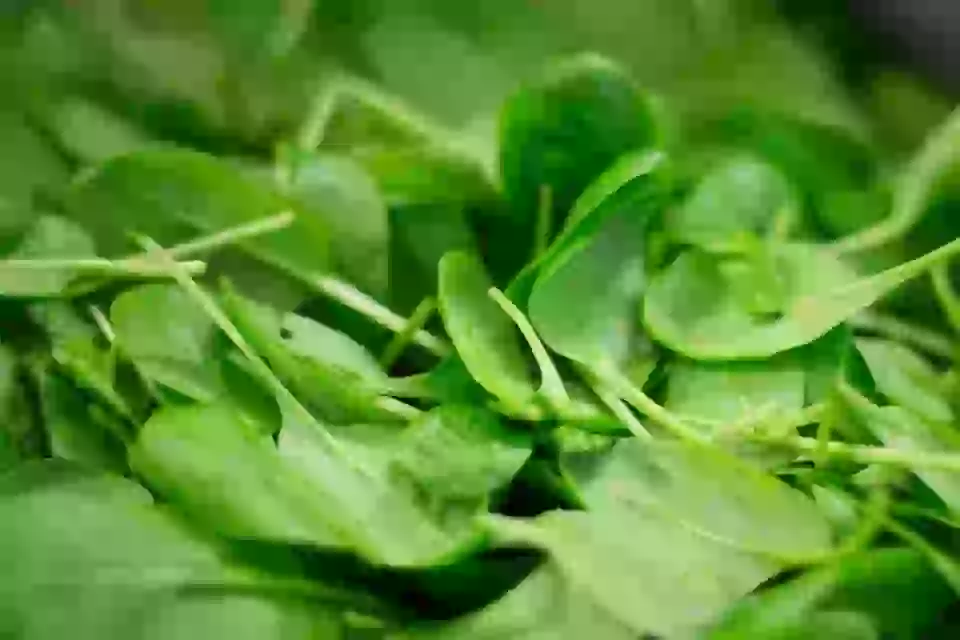
For 100 grams of cooked spinach, you get 3.6 mg of iron or 20% of your daily needs! This amazing vegetable also exceeds your daily needs for vitamin A and K, and is a great source of fiber, vitamin B9, manganese.
5. Legumes
Lentils, beans, and chickpeas are an amazing source of nutrients, especially for vegetarians and vegans. For 100 grams of each, you get:
- 3.3 mg of iron (19% DV) for lentils
- 2.1 mg of iron (12%) DV for cooked black beans and pinto beans
- 2.9 mg of iron (16% DV) for cooked red beans and cooked chickpeas
Legumes are also rich in fiber, protein, folate (B9), and manganese.
6. Tofu
100 grams of raw tofu, a soy-based food, gives you 5.4 mg of iron, which is 30% of your daily value! Tofu is also a great source of calcium, protein, and manganese. However, it is rich in omega-6 fatty acids.
7. Dark chocolate
Just one ounce (28 grams) of dark chocolate (70% cacao) contains 3.3 mg of iron, covering 19% of your daily needs. Dark chocolate is also very rich in magnesium, copper, and manganese. However, it is very high in saturated fat.
8. Spirulina
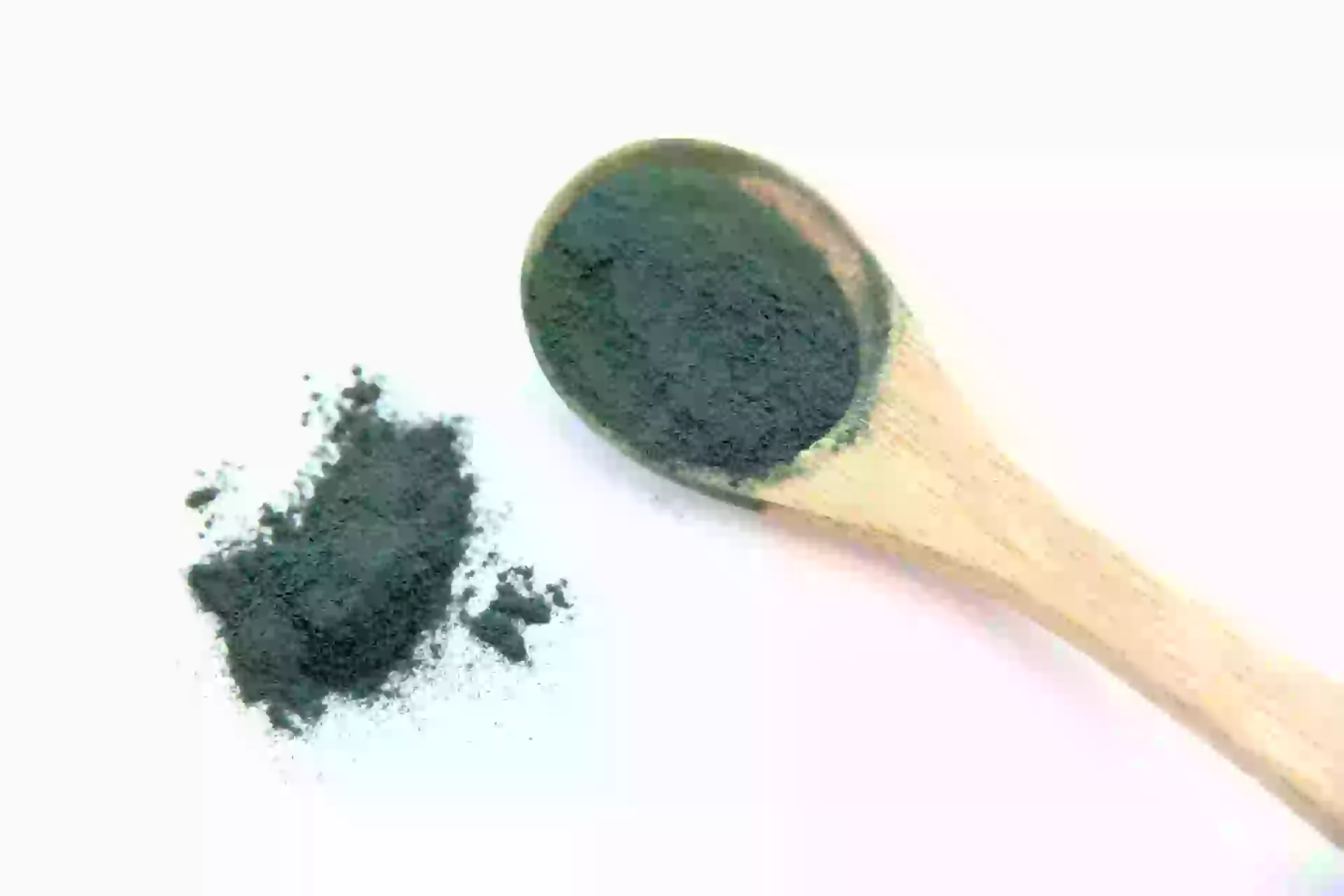
This seaweed is super rich in iron: just one ounce (28 grams) will give you 8 mg of iron, or 44% of your daily value! It’s also an excellent source of protein. If you’re not a fan of seaweed, you can buy it in powder form HERE, or tablet form HERE.
You can now pick some foods rich in iron from this list in order to meet your needs easily. However, consuming too much iron can also have some negative side effects you need to watch out for…
Side effects of getting too much iron
Physiologically, very little iron circulates freely in your bloodstream: it is bound in the form of transferrin. However, if you consume too much iron, the levels of free iron in your body can rise. This can cause oxidation, damaging your cells. An overload in iron, specifically heme iron, has also been linked to cancer 8. In addition, it can alter our natural resistance to infection 9.
Iron in conclusion…
Iron is an important mineral and needs to be sufficiently consumed for good health. Like many nutrients, getting too little or too much of it can be harmful. Look out for the signs that may point to a deficiency, and use this list of iron-rich foods to make sure you meet your adequate iron requirements!
Don’t hesitate to comment on your favorite sources of iron, or add any that haven’t been mentioned.
-Lucie
If you’re interested in nutrition, its impact on our health, and the science behind it, you should definitely read How Not to Die. In this book, Doctor Michael Greger, founder of Nutrition Facts, examines the top causes of death in America and explains how your diet can prevent— and in some cases even reverse— them. His advice is all backed by science and he writes in a very clear and entertaining way. This book isn’t a list of what you already know. It will teach you the keys to living a long healthy life, in a simple and practical way, and without spending fortunes on supplements and pills!
PLUS if you want to take it a step further, you can check out the How Not to Die Cookbook to implement the advice easily!
More references:

Welcome!
I'm Lucie, the nutritionist behind Edukale! If you'd like to learn more about me, click HERE !
Read More!
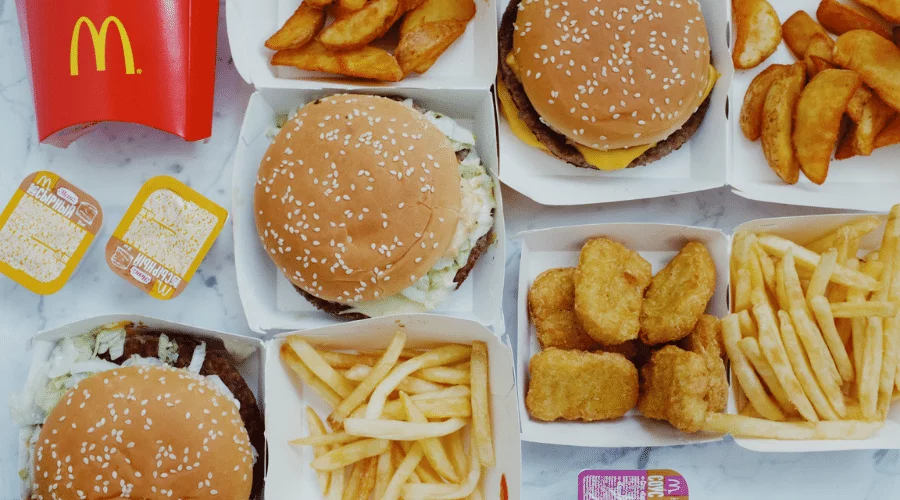
The truth about processed foods
You’ve probably heard that it’s best to reduce your intake of “processed foods” for healthy eating, and increase your intake of whole foods for optimal health.

The Best Foods to Fight Fatigue
Do you feel like you’re always tired and that you need multiple coffees to get you through the day?
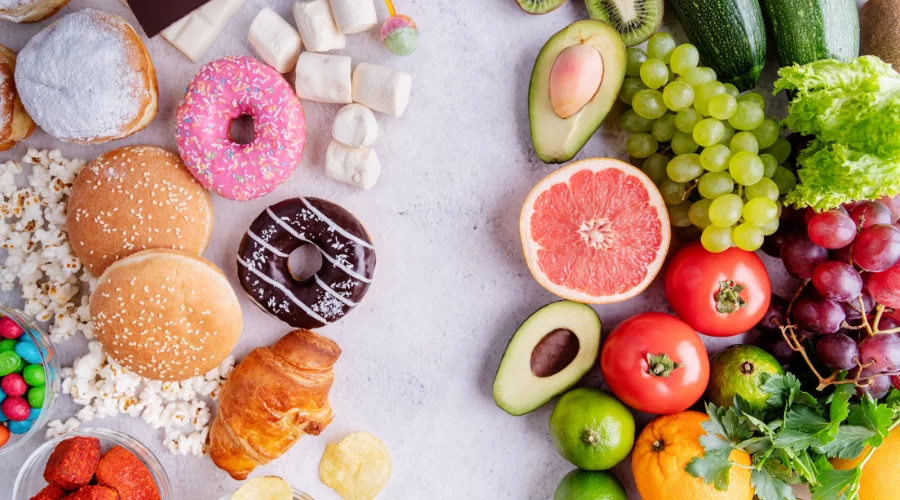
how to find the balance between healthy eating and dieting
It can be hard to find the right balance between healthy eating and dieting without becoming obsessed with food.
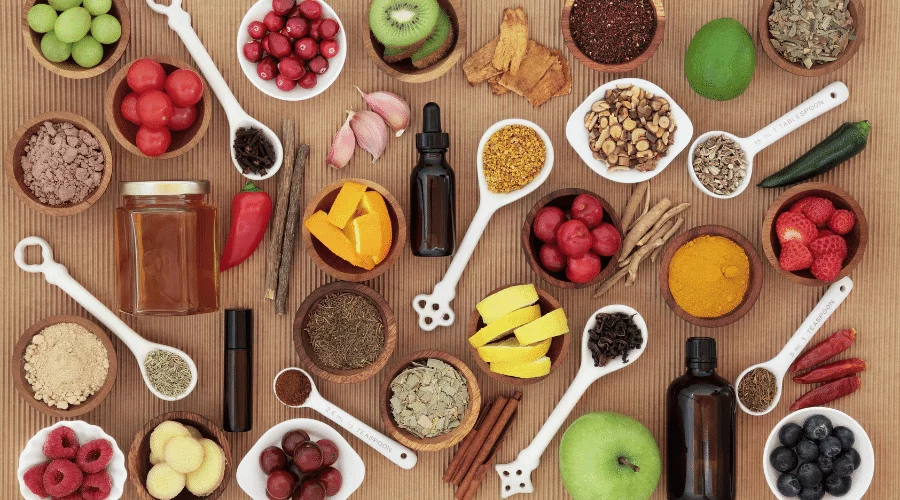
Can you use food as medicine?
“Let food be thy medicine, and let medicine be thy food.” We’re all familiar with this quote attributed to Hippocrates, and we all know the huge impact our food choices have on our health.
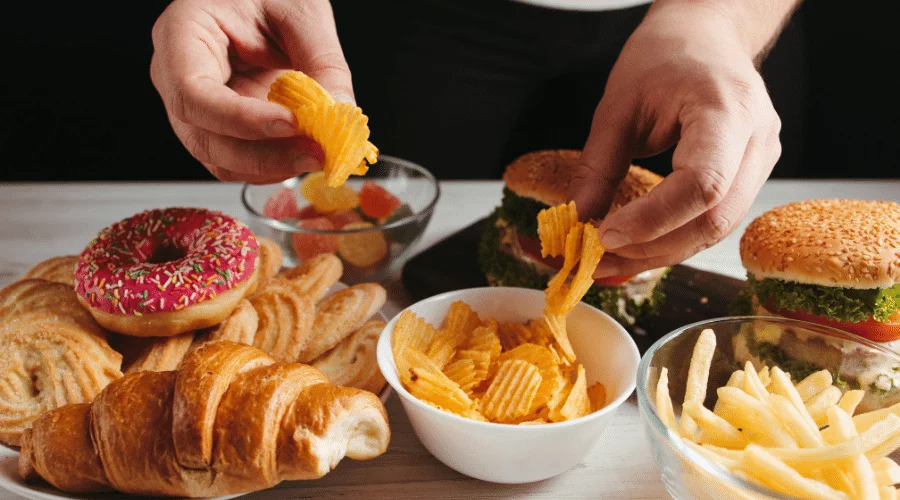
How to finally stop overeating for good!
Overeating means eating past your body’s actual needs, and it can be rather uncomfortable.
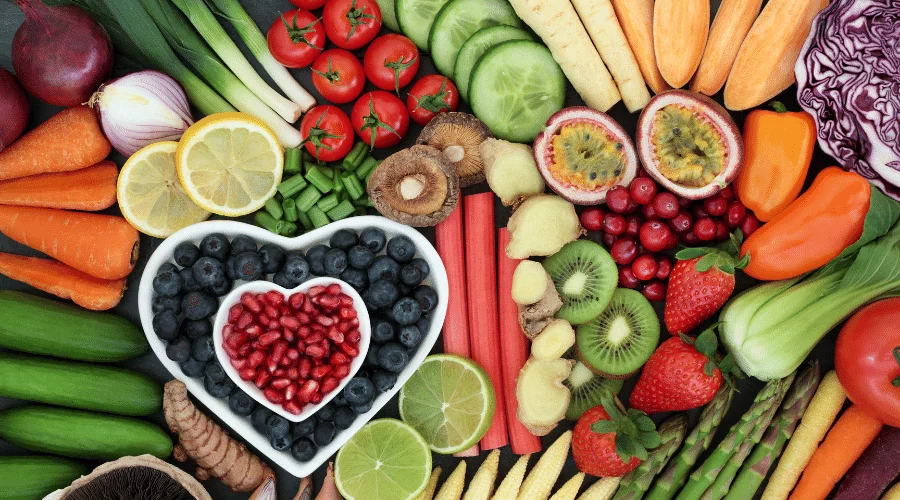
The anti-inflammatory diet: get rid of inflammation
You’ve certainly heard about the anti-inflammatory diet before and the benefits it could have on your body.
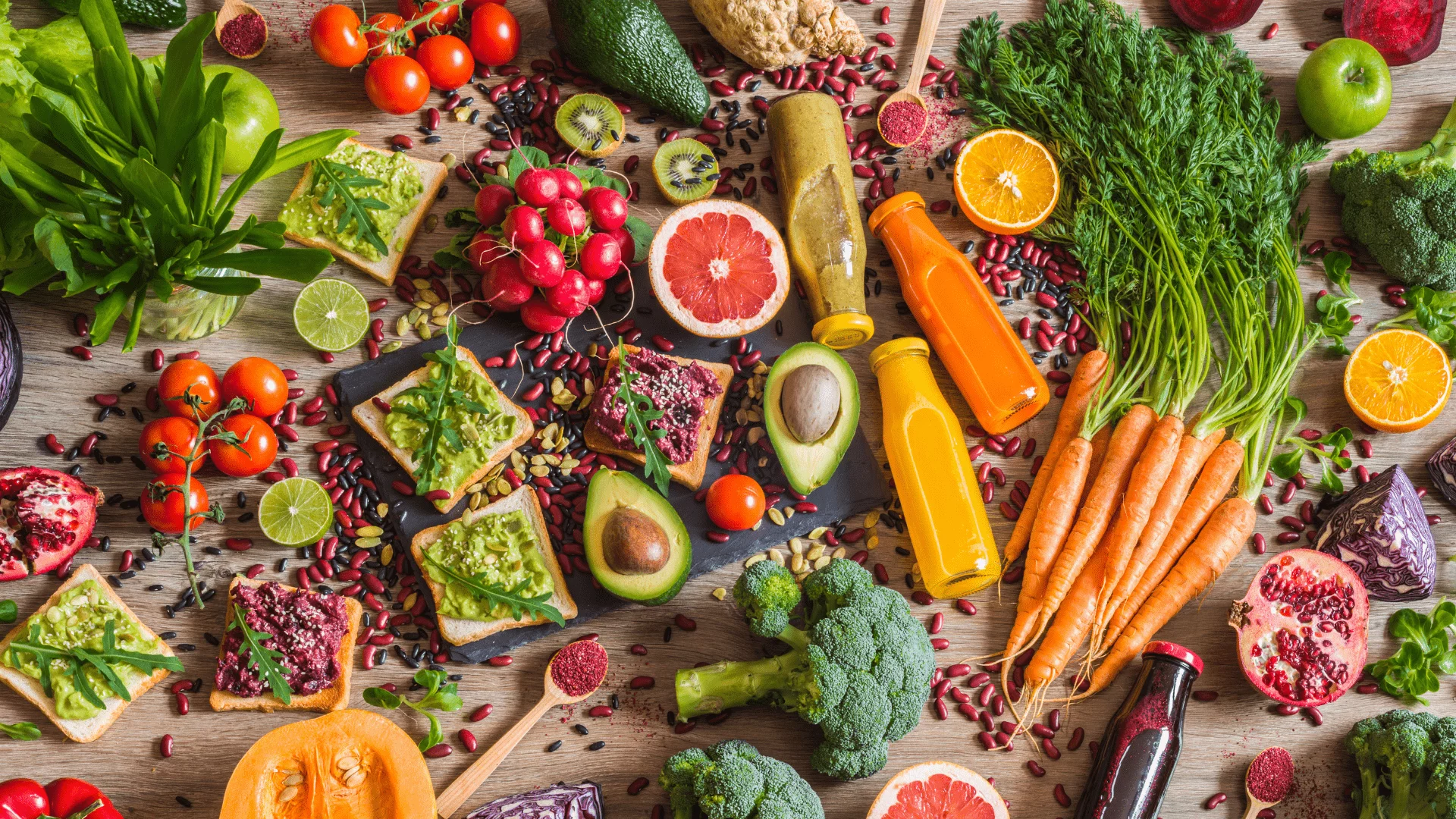
The complete beginner’s guide to veganism
Even though you can absolutely be healthy on a diet that includes animal products, the scientific consensus shows that increasing your consumption of plant-based foods is what is best for health.

Physical vs emotional hunger—learn the difference
You may be aware that physical hunger is not the only type of hunger that exists. There are actually two main types of hunger: physical hunger and emotional hunger



Comments are closed.